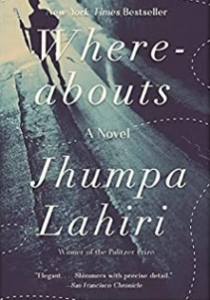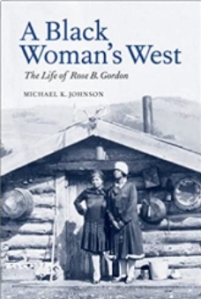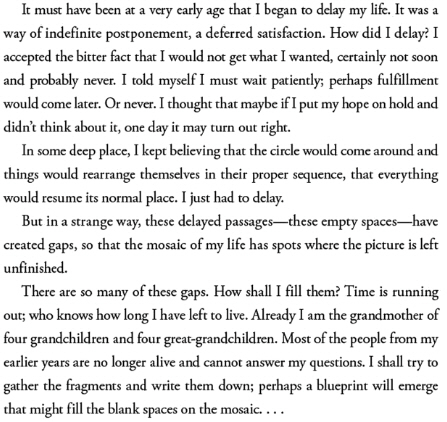Malcolm R. Campbell's Blog, page 54
April 26, 2022
Retirement, maybe
My father who was a college dean and author worked into his 70s. Now, I’m doing the same thing even though I haven’t taught a college course for years, opting to rely on money saved during my successful years in the gigolo business to help make ends meet. There are, of course, writers older than I am who don’t have the resources from a shady past to supplement their literary output.
 When I was in his school, I looked at the careers of Salinger, Elison, Bradbury, Ginsberg, Rand, and others and told people that’s what I wanted to do after I graduated from college. Most of them laughed. Now, years later, I see why they did even though then and now I don’t see that laugh as very supportive.
When I was in his school, I looked at the careers of Salinger, Elison, Bradbury, Ginsberg, Rand, and others and told people that’s what I wanted to do after I graduated from college. Most of them laughed. Now, years later, I see why they did even though then and now I don’t see that laugh as very supportive.
I view the notion of retirement as the time in a person’s life when s/he stops doing what s/he was passionate about for most of his/her life. S/he ends up with no salary, few benefits, and ends up moving into a home where everyone eats jello three times a day. There was nothing exciting about that kind of life, so retirement seemed like a silly thing to do unless you had a lot of stolen wealth hidden in offshore accounts to pay for a big-ass RV and a lifetime of driving around from one scenic tourist destination to another.
That doesn’t excite me either, though I think the odds have gotten pretty slim that I’m suddenly going to be the next James Patterson. So, I think about just stopping writing books and spending my days reading. Everyone has to think about this sooner or later unless they’re Tom Clancy who keeps churning out books even though he’s been dead since 2013. Maybe that cap he wears in his author’s picture is magic and allows him to submit manuscripts from “the other side.”
I used to have a cap like that but during the dark days of Vietnam, I traded it for a pack of cigarettes.
Of course, I might still get a call from Oprah’s book club.
My bookshelves have an infinite number of books, so if I want to retire, I’ve got enough stuff to read to last me, well, forever.
April 24, 2022
Sunday’s Goulash
 Yard Mowing: One thing is certain. When we mow the yard on Saturday, we’re going to be stiff and sore on Sunday. Much of what we’re mowing is old fields rather than a yard. That means when we sit on our riding mowers for a couple of hours, we’re subjecting ourselves to a bone-jarring ride. The picture shows the fields on one side of the house, stretching eastward past the original smokehouse.
Yard Mowing: One thing is certain. When we mow the yard on Saturday, we’re going to be stiff and sore on Sunday. Much of what we’re mowing is old fields rather than a yard. That means when we sit on our riding mowers for a couple of hours, we’re subjecting ourselves to a bone-jarring ride. The picture shows the fields on one side of the house, stretching eastward past the original smokehouse. Call the Midwife: We’ve been watching this 1950s/60s PBS drama since it first aired in 2012. The writing and acting are compelling, and it’s interesting seeing how medicine and midwives existed somewhat differently than they did during the same time period in the States. At the outset, the program was based on former midwife Jennifer Worth’s memoir of working in East London.
Call the Midwife: We’ve been watching this 1950s/60s PBS drama since it first aired in 2012. The writing and acting are compelling, and it’s interesting seeing how medicine and midwives existed somewhat differently than they did during the same time period in the States. At the outset, the program was based on former midwife Jennifer Worth’s memoir of working in East London. Ukraine. I posted a few words about this brutal genocide on my Depot Cafe blog because it’s difficult watching the daily tragedy without feeling angry, sad, and helpless. If I were a poet, I might turn to literature as one way of trying to understand the pointless death and destruction. There’s precedent for Putin’s madness. Stalin orchestrated the terror-famine in 1932 and 1933 that killed millions of Ukrainians. Most of the world views this famine as intentional genocide–just as we view what’s happening now.
Ukraine. I posted a few words about this brutal genocide on my Depot Cafe blog because it’s difficult watching the daily tragedy without feeling angry, sad, and helpless. If I were a poet, I might turn to literature as one way of trying to understand the pointless death and destruction. There’s precedent for Putin’s madness. Stalin orchestrated the terror-famine in 1932 and 1933 that killed millions of Ukrainians. Most of the world views this famine as intentional genocide–just as we view what’s happening now. Thomas-Jacob Publishing Anthology. I hope those of you who would like to read this free book in a PDF, MOBI, or EPUB file have been able to download it from the publisher’s site here. Since the stories, poems, and excerpts are arranged alphabetically by author, my short story “The Smokey Hollow Blues” leads off the collection. Smokey Hollow was a real neighborhood in Tallahassee, Florida, a place I knew about when I was growing up. The city wanted to destroy it via so-called urban renewal, and they did.
Thomas-Jacob Publishing Anthology. I hope those of you who would like to read this free book in a PDF, MOBI, or EPUB file have been able to download it from the publisher’s site here. Since the stories, poems, and excerpts are arranged alphabetically by author, my short story “The Smokey Hollow Blues” leads off the collection. Smokey Hollow was a real neighborhood in Tallahassee, Florida, a place I knew about when I was growing up. The city wanted to destroy it via so-called urban renewal, and they did. Cats! Our cats sleep in the bedroom at night. When we turn off the TV late in the evening, they hover around the bedroom door waiting to be let in. Katy sleeps on the bed. Robbie curls up in a box with a towel. They’re kicked out in the morning as soon as one or both of them starts committing infractions. As you can see, I’ve used clip art here rather than any real pictures of the crimes. We’re too sleepy to take pictures at 4:30 a.m.
Cats! Our cats sleep in the bedroom at night. When we turn off the TV late in the evening, they hover around the bedroom door waiting to be let in. Katy sleeps on the bed. Robbie curls up in a box with a towel. They’re kicked out in the morning as soon as one or both of them starts committing infractions. As you can see, I’ve used clip art here rather than any real pictures of the crimes. We’re too sleepy to take pictures at 4:30 a.m.
April 23, 2022
Looking forward to Jhumpa Lahiri’s new novel ‘Whereabouts’
 I’m a huge fan of this author and have read most of her work. But this novel will be a first, in a way, because she wrote it in Italian and did the English translation herself. That’s rather unusual. In part, I want to see if her novel flows differently than The Namesake, The Lowland, and Interpreter of Maladies.
I’m a huge fan of this author and have read most of her work. But this novel will be a first, in a way, because she wrote it in Italian and did the English translation herself. That’s rather unusual. In part, I want to see if her novel flows differently than The Namesake, The Lowland, and Interpreter of Maladies.
I’m impressed with anyone who can learn a new language and gain enough skill and fluency to write a book using it.
Lahiri, who grew up in the States was born in England to Indian parents. So, her native language is Bengali, though she doesn’t speak it well. At the same time, she didn’t feel that much at home in English even though she handled it well enough (!) to win a Pulitzer Prize and be shortlisted for other awards even though she once said that in both Bengali and English she felt like “a linguistic exile.”
Learning Italian wasn’t easy, even after she moved to Italy. Finally, she found people willing to speak nothing but Italian to her and to correct her mistakes as though she were a child. It worked.
From the PublisherExuberance and dread, attachment and estrangement: in this novel, Jhumpa Lahiri stretches her themes to the limit. In the arc of one year, an unnamed narrator in an unnamed city, in the middle of her life’s journey, realizes that she’s lost her way. The city she calls home acts as a companion and interlocutor: traversing the streets around her house, and in parks, piazzas, museums, stores, and coffee bars, she feels less alone.
We follow her to the pool she frequents, and to the train station that leads to her mother, who is mired in her own solitude after her husband’s untimely death. Among those who appear on this woman’s path are colleagues with whom she feels ill at ease, casual acquaintances, and “him,” a shadow who both consoles and unsettles her. Until one day at the sea, both overwhelmed and replenished by the sun’s vital heat, her perspective will abruptly change.
This is the first novel Lahiri has written in Italian and translated into English. The reader will find the qualities that make Lahiri’s work so beloved: deep intelligence and feeling, richly textured physical and emotional landscapes, and a poetics of dislocation. But Whereabouts, brimming with the impulse to cross barriers, also signals a bold shift of style and sensibility. By grafting herself onto a new literary language, Lahiri has pushed herself to a new level of artistic achievement.
The reviews are good, so I have high hopes for this one.
April 22, 2022
Kentucky library bill potentially jeopardizes our freedom to read
 from PEN America
from PEN America
Bill Allows County Executives to Reject Appointees Recommended by Library Boards and Appoint Whomever They Want
FOR IMMEDIATE RELEASE
April 21, 2022(New York)– PEN America has issued the following statement in response to a new bill passed by the Kentucky Legislature, Senate Bill 167, which would, in effect, politicize county library boards, allowing county executives to reject recommended appointees and take control of the boards through political appointees. The bill becomes law in January 2023.In response, Summer Lopez, Senior Director of Free Expression programs at PEN America, stated: “Though often unheralded as such, public libraries are the beating heart of democracy, making access to the universe of knowledge and information open and equitable for all. At a moment when book bans are sweeping the nation, this effort to hand power to politicians to wield vast control over libraries in Kentucky should be viewed as a massive alarm bell. These attempts to politicize decisions about what information the public can access and what books they can or can’t read, pose a direct threat to the freedom to read.”
Under the bill, county library boards would make initial recommendations of appointees for the boards. Previously, the county judge or executive was required to choose from among the library boards’ recommendations. Under the new law, the county judge/executive can reject all the recommended names and reject the next set of recommendations from the state Department of Libraries and Archives, and then appoint whomever they want.
Senate Bill 167 appeared dead last week following a veto from Governor Andy Beshear and not enough votes from the state House of Representatives. But it was revived by supporters through an override vote and passed on Tuesday.
About PEN America
PEN America stands at the intersection of literature and human rights to protect open expression in the United States and worldwide. We champion the freedom to write, recognizing the power of the word to transform the world. Our mission is to unite writers and their allies to celebrate creative expression and defend the liberties that make it possible. Learn more at pen.org.
April 21, 2022
Upcoming Title: ‘A Black Woman’s West – the life of Rose B. Gordon’
 A Black Woman’s West: The Life of Rose B. Gordon, by Michael K. Johnson, 256pp, will be released on April 22 by the Montana Historical Society Press. It’s available for pre-order on Amazon. As a member of the society, I look forward to the release of important new books by the MHS Press.
A Black Woman’s West: The Life of Rose B. Gordon, by Michael K. Johnson, 256pp, will be released on April 22 by the Montana Historical Society Press. It’s available for pre-order on Amazon. As a member of the society, I look forward to the release of important new books by the MHS Press.
Born in the Barker mining district of central Montana Territory, Rose Beatrice Gordon (1883-1968) was the daughter of an African American chef and an emancipated slave who migrated to the West in the early 1880s. This book tells the story of the Gordon family―John, Anna, Robert, Rose, John Francis Jr., George, and Taylor―and pays tribute to Rose, who lived most of her life in White Sulphur Springs. In her youth, Rose excelled academically and distinguished herself as a musical performer. As an adult, she established her economic independence as a restaurant owner, massage therapist, and caregiver. She also made a place for herself in the public sphere through letters to the editor and eventually through a regular newspaper column for the Meagher County News―a remarkable undertaking at a time when Black women in America were largely denied a public voice. As a Black woman in the West, Gordon’s life was ordinary in terms of its day-to-day struggles but extraordinary in its sum.
Editorial Review“The story of a single life, well told, always amounts to more than the sum of its parts. Critically, Johnson allows the lives that Rose Gordon and her family led in White Sulphur Springs to stand on their own. But through Rose’s story, he recovers a much wider history of Montana’s society and culture that is seldom told. As a book meditating on race, belonging and the meaning of home, A Black Woman’s West has much to say to all students of Montana and Western history.” – Anthony W. Wood, author of Black Montana
Author
Michael K. Johnson is a Professor of American literature at the University of Maine at Farmington. His previous works include Black Masculinity and the Frontier Myth in American Literature, Hoo-Doo Cowboys and Bronze Buckaroos: Conceptions of the African American West and Can’t Stand Still: Taylor Gordon and the Harlem Renaissance.
April 20, 2022
I’m addicted to Cajun food and it’s my parents’ fault
Our family went on a trip to New Orleans when I was in junior high school. I was already in love with the blues, but the food there was an epiphany. Living in North Florida, we already had plenty of seafood, much of which we caught, but I had no idea how much food could be “enhanced” before we made a tour of all the “in” places to eat in and around the French Quarter.
I’m the only one in the family who became addicted, so I have no volunteers when I say, “Who’s up for Cajun tonight?” or “Anyone want to go on a road trip to Louisiana?” So, I’m stuck with nothing better to do than sneak over to a Popeye’s for chicken and dirty rice when I’m out running errands.
 Don’t forget the cornbread
Don’t forget the cornbread
Needless to say, yesterday’s post about Slap Ya Mama Cajun seasonings wasn’t a fluke. I could live on that kind of coolness–or, perhaps I should say “hotness.”
I should mention here and now that Creole food is okay, but it doesn’t quite cut it when I have a choice and can order Cajun food. And far be it from me to try to explain the difference here except to say that I take offense when people serve gumbo without any gumbo in it. Gumbo needs, of course, okra, not the filé powder people keep wanting to substitute. Above all else, Cajun is rustic!
I could live off of Cajun Jambalaya (unlike the Creole version, it has no tomatoes in it). The Internet lists a few other ideas if you’re new at this:
Gumbo.Boiled crawfish.Pecan pie.Boudin sausage.Shrimp and grits.Wild duck.Alligator.Hungry yet, Cher?
April 19, 2022
Man arrested for slapping his mama
 Junction City Texas, April 19, 2022, Star-Gazer News Service–Joe Smith was arrested here today for slapping his mama silly while cooking up a frying pan of dirty rice with a tablespoon of hot blend Slap Ya Mama
Junction City Texas, April 19, 2022, Star-Gazer News Service–Joe Smith was arrested here today for slapping his mama silly while cooking up a frying pan of dirty rice with a tablespoon of hot blend Slap Ya Mama cajun seasoning for extra excitement.
cajun seasoning for extra excitement.
According to police, Smith’s Cajun cookbook included a potentially apocryphal story that the seasoning sold by the Walker family of Ville Platte, Louisiana, made food so good you were supposed to slap your mama for never cooking anything that great.
According to the Walker Family, Anthony “TW” Walker (who invented the blend) has never slapped his mama, never even considered it. In reality, according to TW, ”When you use this seasoning, the food tastes so good, you’ll receive a loving slap on the back and a kiss on the cheek for creating such a great tasting Cajun dish.”
Smith’s attorney, Aurelie Jones said that Smith missed the memo and/or the footnote in the recipe about mama slapping.
“I thought I had to slap my mama just after mincing the chicken gizzards or the recipe wouldn’t work,” said Smith. “That mojo was the conjure behind the cooking.”
Smith’s father, Wesson, said that if his boy had been cooking Slap Yo’ Daddy BBQ, his son would be in the morgue because “Nobody slaps me and gets away with it. My wife Irene thinks the dirty rice faux pas was kind of funny after she iced down her face.”
The family is pressing assault and battery charges to “teach Joe a lesson.”
Jones told reporters that the dirty rice was spectacular, “though not worth jail time.”
-30-
Story by Jock Stewart, Special Investigative Reporter
April 18, 2022
Free Gift from Thomas-Jacob Publishing
The anthology Things We Write was released today by Thomas-Jacob Publishing.
 Seven Thomas-Jacob Publishing, LLC authors bring you 15 of their short stories, excerpts, and poems. Sometimes offbeat, always captivating, the selections include historical fiction, magical realism, crime, psychological suspense, literary fiction, coming of age, and poetry for both children and adults. The works are grouped by author name, not genre, ensuring a surprise each time you turn the page.
Seven Thomas-Jacob Publishing, LLC authors bring you 15 of their short stories, excerpts, and poems. Sometimes offbeat, always captivating, the selections include historical fiction, magical realism, crime, psychological suspense, literary fiction, coming of age, and poetry for both children and adults. The works are grouped by author name, not genre, ensuring a surprise each time you turn the page.
You can download your free copy as a PDF, MOBI (Kindle), or EPUB (other e-readers) file from my publisher’s website catalog here.
My contributions are a new short story “The Smokey Hollow Blues” and an excerpted short story, “Haints in the Woods” from a previous Thomas-Jacob collection. Both stories feature characters many of you have read about in my Florida Folk Magic Series, Eulalie (the conjure woman) Willie (Eulalie’s husband), Lena (the magical cat), and Pollyanna (a sneaky helper who kicks butt and takes names).
I hope you enjoy the collection.
April 17, 2022
Sunday’s trail mix
 Where’s the header picture? I removed it because this blog posts to my author’s page on Facebook and the software that made that happen kept selecting the header picture to display with the post rather than the picture I had inserted into the post. That ended up looking like nonsense. Sometimes I could fix it, and sometimes not, but the hassle was getting to be just too much.
Where’s the header picture? I removed it because this blog posts to my author’s page on Facebook and the software that made that happen kept selecting the header picture to display with the post rather than the picture I had inserted into the post. That ended up looking like nonsense. Sometimes I could fix it, and sometimes not, but the hassle was getting to be just too much. Figuring Out Readership in Advance. I can’t do it. My post about the latest Florida tollway boondoggle is getting more attention than posts about Run, Rose, Run (Patterson and Parton) and the real librarian of Auschwitz. I would have bet money that the tollway post wouldn’t attract much attention when up against bestselling books. Hey, it’s okay with me. I’m happy to see a bunch of readers every week.
Figuring Out Readership in Advance. I can’t do it. My post about the latest Florida tollway boondoggle is getting more attention than posts about Run, Rose, Run (Patterson and Parton) and the real librarian of Auschwitz. I would have bet money that the tollway post wouldn’t attract much attention when up against bestselling books. Hey, it’s okay with me. I’m happy to see a bunch of readers every week. Darn it, Husqvarna. Thanks (sarcasm) for mounting the sparkplug in such a way that I have to add a socket to my socket and ratchet set just to change the sparkplug. I have accumulated several of these sets and, while each of them is capable of disarming a submarine’s torpedo (after it’s fired), none of them has a sparkplug socket–which costs about the same as the new sparkplug.
Darn it, Husqvarna. Thanks (sarcasm) for mounting the sparkplug in such a way that I have to add a socket to my socket and ratchet set just to change the sparkplug. I have accumulated several of these sets and, while each of them is capable of disarming a submarine’s torpedo (after it’s fired), none of them has a sparkplug socket–which costs about the same as the new sparkplug. Selling a chapbook for a good cause? If so, why make it hard to buy? First, there’s no apparent website displaying the chapbook. Second, you have to send an e-mail to the professor in charge of the project to find out the cost and how to order it. And then, you have to use a Paypal competitor (that’s owned by PayPal) to make your purchase. Maybe you love Venmo. It seems to be intended for those with mobile devices. Whether or not I can install it on my desktop PC is described in convoluted instructions around the web. The thing is, I don’t need it or want it. So, finally, after a lot of back and forth, I got the chapbook people to accept a check sent via snail mail. Making the chapbook hard to buy won’t help the cause. I hope the publisher didn’t mandate that poems to the chapbook had to be submitted in a WordStar file or rolled up inside a sparkplug socket.
Selling a chapbook for a good cause? If so, why make it hard to buy? First, there’s no apparent website displaying the chapbook. Second, you have to send an e-mail to the professor in charge of the project to find out the cost and how to order it. And then, you have to use a Paypal competitor (that’s owned by PayPal) to make your purchase. Maybe you love Venmo. It seems to be intended for those with mobile devices. Whether or not I can install it on my desktop PC is described in convoluted instructions around the web. The thing is, I don’t need it or want it. So, finally, after a lot of back and forth, I got the chapbook people to accept a check sent via snail mail. Making the chapbook hard to buy won’t help the cause. I hope the publisher didn’t mandate that poems to the chapbook had to be submitted in a WordStar file or rolled up inside a sparkplug socket. Thanks for the Janis Joplin pix. I don’t know who’s doing it or why, but Facebook has been displaying archival Janis pictures. She was a favorite of mine gone too darned soon. I hope some of the smiles on her face in these photographs came from joy rather than too much Southern Comfort. I still have her vinyl records but due to bad karma, I’m too hard of hearing to listen to them. I liked the way she thought: “Life is too damn short and [screwed] up to go through it silently loving someone and never telling them how you feel. [Screw] the consequences, [screw] the implications of the actions, to hell with it all… whatever happens as a result is better than the nothingness that is inevitable with silence.”
Thanks for the Janis Joplin pix. I don’t know who’s doing it or why, but Facebook has been displaying archival Janis pictures. She was a favorite of mine gone too darned soon. I hope some of the smiles on her face in these photographs came from joy rather than too much Southern Comfort. I still have her vinyl records but due to bad karma, I’m too hard of hearing to listen to them. I liked the way she thought: “Life is too damn short and [screwed] up to go through it silently loving someone and never telling them how you feel. [Screw] the consequences, [screw] the implications of the actions, to hell with it all… whatever happens as a result is better than the nothingness that is inevitable with silence.”
April 16, 2022
Briefly noted: ‘A Delayed Life: The true story of the Librarian of Auschwitz’ by Dita Kraus
 After reading Antonio Iturbe’s The Librarian of Auschwitz, the well-researched and agonizing novel based on the true story of Dita Kraus, I was happy to discover that Dita Kraus is still with us, apparently as sharp and feisty as ever at 92.
After reading Antonio Iturbe’s The Librarian of Auschwitz, the well-researched and agonizing novel based on the true story of Dita Kraus, I was happy to discover that Dita Kraus is still with us, apparently as sharp and feisty as ever at 92.
She has her own website here where she sells her delicate paintings of flowers, a few of the books mentioned in Iturbe’s novel, and provides a link to her own memoir A Delayed Life: The true story of the Librarian of Auschwitz which was published in 2020.
Look at the book with Amazon’s look inside feature, and you’ll find some amazing writing, pragmatic, incisive, and bluntly honest, as this excerpt shows:

The powerful, heart-breaking memoir of Dita Kraus, THE LIBRARIAN OF AUSCHWITZ
Dita Kraus was born in Prague in 1929 – in her powerful new memoir she writes about her childhood before the war and then during the Nazi-occupation that saw her and her family sent to the Jewish ghetto at Terezín and from there to Auschwitz and then Bergen-Belsen.
Dita writes powerfully and unflinchingly about the harsh conditions of the camps and her role as librarian of the precious books the prisoners had managed to smuggle past the guards. She also writes about the liberation of the camps and her chance meeting with fellow survivor Otto B Kraus after the war.
Part of Dita’s story was told in fictional form in the Sunday Times bestseller THE LIBRARIAN OF AUSCHWITZ by Antonio Iturbe.
I am so impressed with this fine lady, that I ordered the book immediately. Perhaps it will fill in some of the gaps in my knowledge about her. If I had her persistence and bravery and dedication, I could move mountains–that’s pretty much what she did in the family unit school at Auschwitz-Birkenau when she was fourteen years old in this unholy place:





